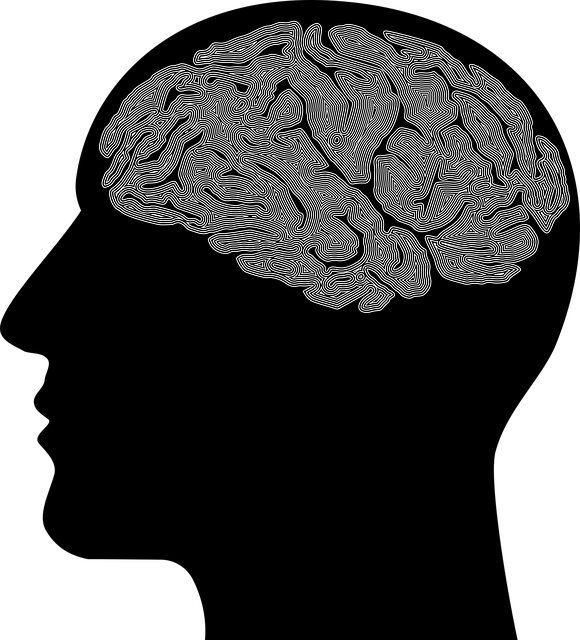Mental health policies significantly impact access to essential services, especially for diverse communities and young children. By analyzing existing frameworks, we identify gaps in interventions like Cognitive Processing Therapy (CPT), proven effective in treating trauma. Advocacy for cultural sensitivity in mental healthcare, coupled with community outreach programs, can improve support for underserved areas. Policy analysis and advocacy drive accessible, tailored mental health solutions, such as promoting CPT training and early intervention strategies, enhancing well-being outcomes for young individuals.
“Uncovering the intricate landscape of mental health policy is a pivotal step towards advocating for better access to care, especially for young children. This article delves into the essential elements of mental health policy analysis, highlighting its impact on advocacy efforts. We explore the potential of Cognitive Processing Therapy in enhancing the mental well-being of young minds and identify gaps in current policies that hinder therapy accessibility. By examining effective policy analysis strategies, we empower advocates to drive change, ensuring every child receives the therapeutic support they need.”
- Understanding Mental Health Policy: A Foundation for Advocacy
- The Impact of Cognitive Processing Therapy on Young Children's Mental Well-being
- Gaps in Current Policies and Their Effect on Access to Therapy
- Strategies for Effective Mental Health Policy Analysis
- Advocacy in Action: Promoting Therapy for Young Children
Understanding Mental Health Policy: A Foundation for Advocacy

Mental health policies are pivotal in shaping access to essential services and support for individuals across diverse communities. Understanding these policies is a cornerstone for advocacy, enabling stakeholders to navigate complex systems and drive change. By examining existing frameworks, we uncover areas where improvement is needed, especially regarding interventions like Cognitive Processing Therapy (CPT), proven effective in treating young children with trauma.
Advocacy efforts should also highlight the significance of cultural sensitivity in mental healthcare practice, ensuring that services are inclusive and tailored to meet the unique needs of diverse populations. Furthermore, implementing community outreach program initiatives can extend support to underserved areas, fostering self-esteem improvement and promoting early intervention for mental health challenges. This multifaceted approach leverages policy analysis to advocate for comprehensive, culturally responsive, and accessible mental healthcare solutions.
The Impact of Cognitive Processing Therapy on Young Children's Mental Well-being

Cognitive Processing Therapy (CPT) has emerged as a highly effective approach to enhancing mental well-being in young children. This evidence-based therapy focuses on helping children make sense of their experiences and emotions by modifying negative thought patterns. CPT encourages kids to process traumatic or stressful events, fostering healthier cognitive and emotional responses. By teaching them to reframe thoughts and engage in more adaptive behaviors, this therapy empowers young individuals to cope with challenges more effectively.
The impact of CPT on mental health is particularly notable for at-risk populations. Research suggests that this therapy can significantly reduce symptoms of anxiety, depression, and post-traumatic stress disorder (PTSD) in children. Moreover, integrating mindfulness meditation techniques within CPT has shown promising results in promoting resilience and emotional regulation skills. As the demand for mental healthcare services for young people grows, Healthcare Provider Cultural Competency Training and Public Awareness Campaigns Development can play a crucial role in ensuring that families are equipped with knowledge about available resources, encouraging early intervention, and ultimately improving overall mental health outcomes.
Gaps in Current Policies and Their Effect on Access to Therapy

In many regions, current mental health policies fail to address critical gaps that hinder access to essential therapy for young children. One prominent area of concern is the limited availability and inadequate coverage of evidence-based practices, such as Cognitive Processing Therapy (CPT), which has proven effective in treating trauma and anxiety disorders in this vulnerable population. While traditional approaches often focus on pharmacological interventions, there’s a pressing need to integrate more holistic strategies that cater to the unique needs of children. The absence of comprehensive policies supporting mental wellness initiatives makes it challenging for families to access affordable and age-appropriate therapeutic support.
Furthermore, the lack of specialized programs targeting inner strength development in young minds exacerbates the problem. Mind Over Matter principles, which emphasize resilience and coping mechanisms, are often overlooked in policy frameworks. As a result, children struggling with mental health issues may not receive the necessary tools to navigate their challenges effectively. Addressing these gaps is crucial to ensuring that therapy becomes more accessible, tailored to children’s developmental stages, and centered around fostering mental wellness and inner strength development.
Strategies for Effective Mental Health Policy Analysis

Mental health policy analysis requires a comprehensive and strategic approach to effectively address the needs of vulnerable populations, especially young children. One powerful tool that has gained recognition is Cognitive Processing Therapy (CPT), which focuses on helping individuals understand and process traumatic events, thereby improving their mental health outcomes. By employing CPT alongside other evidence-based practices, such as mood management techniques, policy advocates can push for more holistic and tailored interventions.
Additionally, promoting self-care routine development for better mental health is a key strategy in prevention. This includes encouraging regular exercise, adequate sleep, and healthy eating habits, alongside burnout prevention measures. These proactive approaches not only enhance overall well-being but also reduce the risk of mental health deterioration, particularly among young minds still developing cognitive and emotional resilience. Such strategies collectively contribute to robust mental health policies that cater to the unique needs of children, ensuring a brighter and more resilient future for them.
Advocacy in Action: Promoting Therapy for Young Children

Advocacy plays a pivotal role in shaping mental health policies and ensuring access to essential services, especially for young children. One powerful example is the push for wider acceptance and implementation of therapeutic approaches like Cognitive Processing Therapy (CPT). CPT is an evidence-based practice designed to help children process traumatic experiences and develop coping mechanisms, thereby improving their overall mental wellness.
Through dedicated advocacy efforts, including public awareness campaigns and collaborations with mental health professionals, there has been a growing recognition of the need for early intervention. This movement has led to increased funding for research and training in CPT, making it more accessible within schools and communities. As a result, many young children are benefiting from this therapy, which not only treats current symptoms but also equips them with lifelong resilience and coping skills. Such initiatives highlight the power of advocacy in transforming mental health care and fostering compassion cultivation practices on a broader scale.
Mental health policy analysis and advocacy play a pivotal role in shaping accessible and effective treatment options, particularly for young children. By understanding the foundations of mental health policy and its impact on therapy access, we can identify gaps and implement strategies to improve outcomes. Cognitive Processing Therapy (CPT) exemplifies the potential of targeted interventions, showcasing significant benefits for young minds. Effective advocacy efforts can drive policy changes, ensuring that more children receive the much-needed CPT and similar therapies. Together, through rigorous analysis and collective action, we can revolutionize mental health support for our youngest population.














